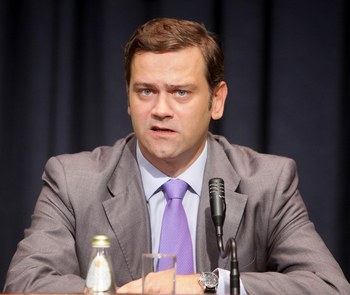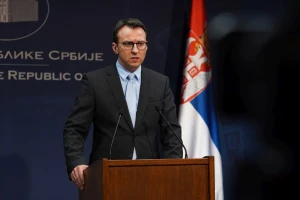- Serbia
Get to know Serbia
- Citizens
Culture and science
Health services
Pension and disability insurance
- Business
Employment
Economy
- Media
- Government
- Contact
Keep in touch
Contact form
Back
Keepin touch
Whether you have a question, comment, suggestion or any problem in the purview of the government, send us your message and we will try to respond as soon as possible. If your problem is not in our purview, we will forward your message to the relevant institution.
Q:
A:
Status-neutral solution to customs seal issue
Belgrade,
3 September 2011
Head of the Serbian team for talks with Pristina Borislav Stefanovic voiced his pleasure today over the agreement about the customs seal and cadastre, reached with Pristina in Brussels yesterday and reiterated that these are status-neutral solutions, without elements of the so-called statehood of Kosovo.
Stefanovic specified at a press conference that the customs seals will read ”Kosovo Customs”, which means there will be no elements of the so-called statehood of Kosovo.
He noted that the seal will not read ”Republic of Kosovo” and it will not have a coat of arms, a national flag or anything similar, adding that the accompanying documentation will also be fully status-neutral.
Agreement has been reached and it is in line with UNMIK’s stance, which is status-neutral, and also with UN Security Council Resolution 1244. It is also acceptable for EU members who did not recognise Kosovo’s unilaterally declared independence, he observed.
Serbia retains the right to add its own customs seal to customs documentation, which shall affirm the status-neutral approach, he explained.
As for the cadastre, Stefanovic explained that the agreement reflects Serbia’s interests and its proposals to a great degree.
Appropriate bodies will be formed with our participation, which will enable citizens to finally exercise their property rights based on the documents they have, whether these are sales contracts or land registers, he explained, adding that this refers to both private entities and the church.
He said that adhering to the procedure, commissions will carry out a revision and synchronisation of the two cadastres, adding that there will be a long process of annulling the attempts to seize property, manipulation and forgery.
Stefanovic said that dialogue showed that there is capacity for positive solutions to difficult problems citizens are faced with.
Yesterday’s talks did not look at the issue of Jarinje and Brnjak administrative crossings, he added.
This issue will be dealt with during the remaining course of dialogue with Pristina, he said adding that the only acceptable solution for Serbia implies absence of Kosovo customs or customs officers at these crossings, and that agreement reached with KFOR still remains and will be valid by 15 September at the least.
Any change in this agreement will mean a call to instability and a violation of peace.
Yesterday’s talks were the most strenuous so far, primarily because of Pristina’s explicitly negative approach, as its representatives did not seem eager to reach an agreement on telecommunications, electricity and recognition of faculty degrees, Stefanovic added.
He noted that the seal will not read ”Republic of Kosovo” and it will not have a coat of arms, a national flag or anything similar, adding that the accompanying documentation will also be fully status-neutral.
Agreement has been reached and it is in line with UNMIK’s stance, which is status-neutral, and also with UN Security Council Resolution 1244. It is also acceptable for EU members who did not recognise Kosovo’s unilaterally declared independence, he observed.
Serbia retains the right to add its own customs seal to customs documentation, which shall affirm the status-neutral approach, he explained.
As for the cadastre, Stefanovic explained that the agreement reflects Serbia’s interests and its proposals to a great degree.
Appropriate bodies will be formed with our participation, which will enable citizens to finally exercise their property rights based on the documents they have, whether these are sales contracts or land registers, he explained, adding that this refers to both private entities and the church.
He said that adhering to the procedure, commissions will carry out a revision and synchronisation of the two cadastres, adding that there will be a long process of annulling the attempts to seize property, manipulation and forgery.
Stefanovic said that dialogue showed that there is capacity for positive solutions to difficult problems citizens are faced with.
Yesterday’s talks did not look at the issue of Jarinje and Brnjak administrative crossings, he added.
This issue will be dealt with during the remaining course of dialogue with Pristina, he said adding that the only acceptable solution for Serbia implies absence of Kosovo customs or customs officers at these crossings, and that agreement reached with KFOR still remains and will be valid by 15 September at the least.
Any change in this agreement will mean a call to instability and a violation of peace.
Yesterday’s talks were the most strenuous so far, primarily because of Pristina’s explicitly negative approach, as its representatives did not seem eager to reach an agreement on telecommunications, electricity and recognition of faculty degrees, Stefanovic added.
-
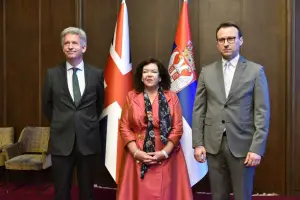 Belgrade, 18 July 2025
Belgrade, 18 July 2025Daily exposure of Serbs in Kosovo and Metohija to Priština’s terror
-
 Belgrade, 11 July 2025
Belgrade, 11 July 2025Aid to families in Kosovo and Metohija who suffered damage from fires
-
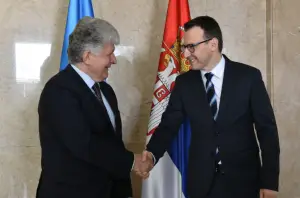 Belgrade, 10 July 2025
Belgrade, 10 July 2025Serbs in Kosovo and Metohija existentially threatened, disenfranchised
-
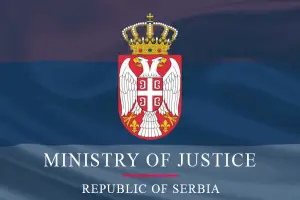 Belgrade, 19 June 2025
Belgrade, 19 June 2025Priština once again gravely violates basic human rights of Serbs in Kosovo and Metohija
-
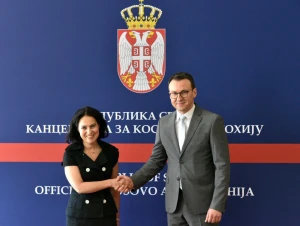 Belgrade, 13 June 2025
Belgrade, 13 June 2025Constant violent acts of Priština against Serbian people in Kosovo and Metohija
-
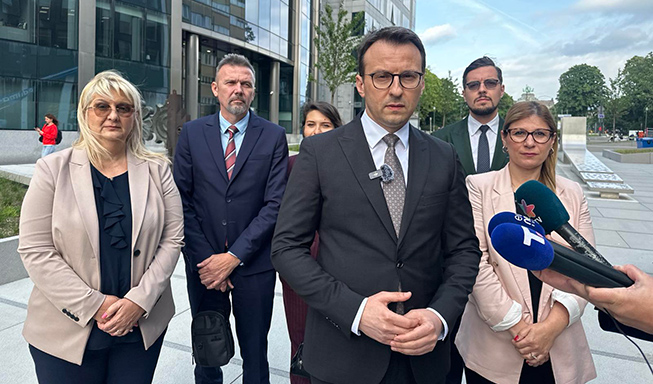 Belgrade/Brussels, 10 June 2025
Belgrade/Brussels, 10 June 2025Formation of Community of Serb Municipalities, de-escalation of situation in north of Kosovo and Metohija a priority
-
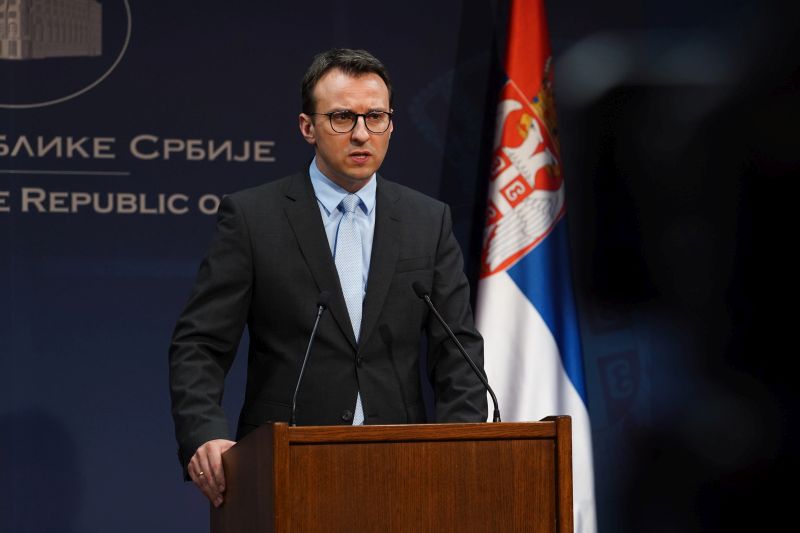 Belgrade, 27 May 2025
Belgrade, 27 May 2025“Kosovo police” raid premises of Leposavić Sports and Tourism Organisation
-
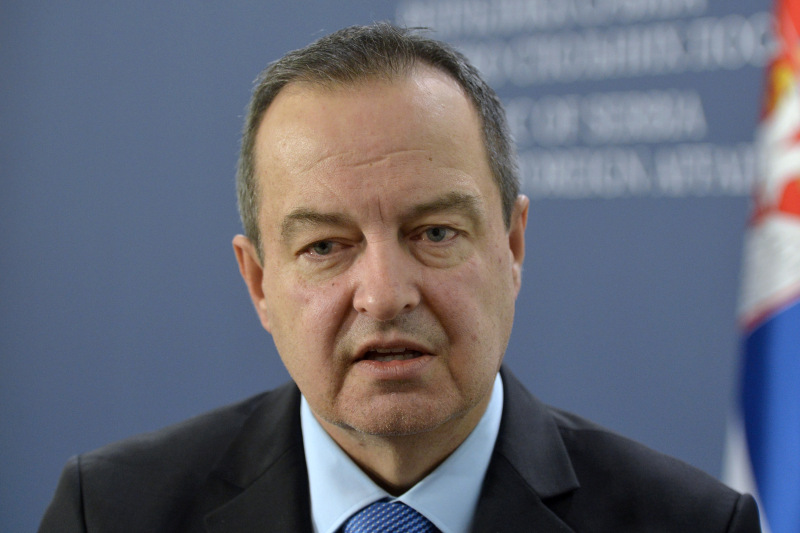 Belgrade, 24 May 2025
Belgrade, 24 May 2025Arrest warrant issued for attacker on Serbian high school graduate in North Mitrovica
-
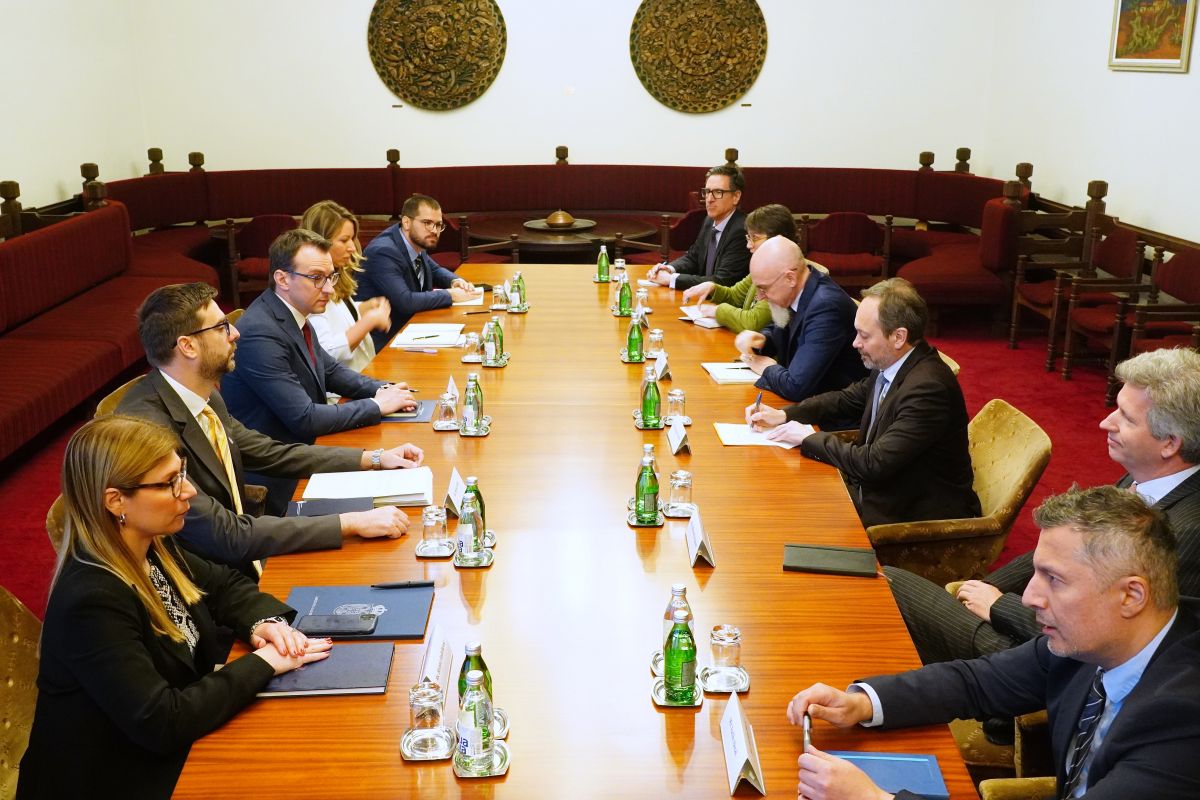 Belgrade, 15 May 2025
Belgrade, 15 May 2025De-escalation priority topic in dialogue with Priština

